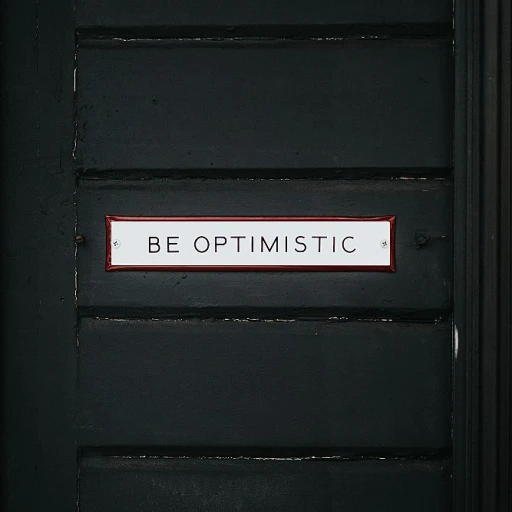Defining pre-adverse action
Exploring Pre-Adverse Action
Understanding the nuances of pre-adverse action in the context of background checks is essential for both employers and candidates. At its core, pre-adverse action is a crucial step in the hiring process that ensures transparency and fairness when the results of a background check might negatively impact an employment decision. It involves notifying the candidate that something in their background report could lead to an adverse action, such as not getting hired, if they do not address the concern. This process is guided by the Fair Credit Reporting Act (FCRA), which outlines specific compliance measures employers must adhere to. According to FCRA requirements, employers are mandated to follow certain procedures, including providing job candidates with a copy of their background check report and a summary of their rights. Before taking any adverse action, like rejecting the candidate based on their background screening results, a waiting period must also be respected. Employers are further required to issue a pre-adverse action notice to the candidate, which gives them the opportunity to review the consumer report and address any discrepancies. This could involve correcting potential errors in the credit reporting or contesting any inaccuracies in the findings presented by the consumer reporting agency. For more on how background checks align with FCRA requirements, you might find this detailed article here insightful. In conclusion, the pre-adverse action process serves as an essential step in ensuring fairness and compliance within the employment screening process, benefiting both employers and applicants by promoting an understanding of rights and responsibilities.Legal requirements and compliance
Legal Framework and Compliance Essentials
In the realm of background checks, understanding the legal requirements surrounding pre-adverse action is crucial for both employers and candidates. The Fair Credit Reporting Act (FCRA) sets the foundation for compliance, ensuring that the rights of applicants are protected throughout the hiring process. Employers must adhere to these regulations to avoid legal pitfalls and maintain a fair hiring environment.
When an employer considers taking adverse action based on a background check report, the FCRA mandates a specific process. This involves providing the candidate with a pre-adverse action notice, a copy of the consumer report, and a summary of rights under the FCRA. This step is vital as it offers the candidate an opportunity to review the information and dispute any inaccuracies before a final decision is made.
Compliance doesn't end with the pre-adverse action notice. Employers are also required to wait a reasonable period before proceeding with the final adverse action. This waiting period allows the candidate to respond or clarify any discrepancies in the background report. Ensuring this process is followed not only protects the candidate's rights but also shields employers from potential legal challenges.
Moreover, understanding the nuances of the FCRA and other relevant laws, such as the New York Fair Chance Act, is essential for employers. These laws can vary by state and have specific implications on how background checks should be conducted. For a deeper dive into these legal intricacies, you might want to explore understanding the duration of NDAs and their relevance to employment processes.
Impact on job candidates
The Candidate Experience and Potential Impacts
When a pre-adverse action notice is issued, it signifies a critical point in the background check process. It indicates that an employer is contemplating making a negative employment decision based on the findings of a background report. For the job candidate, receiving such notice can be quite daunting and could impact the perception of fairness within the hiring process. From a candidate's standpoint, the pre-adverse action serves as an alert, triggering a specific waiting period. This period allows the candidate to review the consumer report and address any inaccuracies or provide explanations for certain findings. It puts control in the candidates' hands, giving them an opportunity to dispute inaccurate information through the involved credit reporting agency. Candidates often feel pressured by the process and uncertain about their potential employment outcome. Therefore, it’s significant for both parties to ensure clarity in communication during this stage. Typically, the waiting period before any final adverse action is taken is a minimum of five business days. During this time, candidates can reach out with any disputes or clarifications concerning the information found within the background screening report. The implications of a pre-adverse action can extend beyond just employment opportunities. It may also influence a candidate's trust in the hiring practices of a company. Clear, transparent procedures and adherence to compliance, such as those outlined in the Fair Credit Reporting Act (FCRA), are essential in fostering a positive employer-employee relationship. For more insights on enhancing a company’s transparency, explore optimizing your Google business profile. While every candidate might not experience the background check action process in the same way, maintaining a fair approach can significantly boost an employer's reputation and candidate satisfaction.Employer responsibilities
Employer Responsibilities in the Pre-Adverse Action Process
When it comes to the pre-adverse action process in background checks, employers have significant responsibilities to ensure compliance with legal requirements. This phase of the hiring process requires employers to follow specific steps as outlined by the Fair Credit Reporting Act (FCRA), maintaining fairness and transparency. To start, employers must provide the candidate with a pre-adverse action notice, which includes a copy of the background report and a summary of their rights under the FCRA. This step allows the applicant to review the background screening results and dispute any inaccuracies with the reporting agency. Moreover, employers should allow a reasonable waiting period between the pre-adverse action notice and any final employment decision. This period enables the applicant to address possible errors in the consumer report, agreeing with the principle of ensuring fair credit and consumer reporting. After this waiting period, if the employer decides not to proceed with the hiring based on the background check, a final adverse action letter must be sent. This document not only informs the candidate of the decision but also provides the contact information of the credit reporting agency involved. Transparency in this process helps ensure applicants are aware of their rights and the reasons behind employment decisions, thus fostering trust. Employers are advised to maintain meticulous records of all communications and actions taken throughout the pre-adverse and adverse action process. These records demonstrate adherence to compliance standards and protect the employer in the event of a dispute. In summary, careful attention to the pre-adverse action process safeguards both the candidate's rights and the employer's interests, as they navigate the often-complex terrain of background checks.Trends in background checks
Emerging Directions in Employment-Related Screening
The landscape of background checks is continuously evolving in response to technological advancements, regulatory updates, and shifting employer needs. Staying aligned with these trends is critical for employers aiming to maintain compliance and make informed hiring decisions.- Advanced Technology Integration: Technology plays a pivotal role in background screening processes. Automated systems and AI-powered tools are being increasingly utilized to streamline the screening procedure, reducing time and administrative burden for employers while enhancing accuracy and reliability of consumer reports.
- Emphasis on Fairness and Accuracy: Adhering to the Fair Credit Reporting Act (FCRA) and ensuring accurate reporting is crucial. Employers are placing greater emphasis on ensuring that the information derived from background checks, such as credit, employment history, and criminal records, are handled with care and precision. This includes providing timely pre-adverse action notices to candidates to uphold fairness.
- Greater Focus on Data Privacy: Ensuring the confidentiality and privacy of candidates' personal information has become a priority. With rising concerns about data breaches and misuse, employers are adopting more stringent data protection measures, thereby fostering trust with applicants during the background check process.
- Customization of Screening Practices: Employers are tailoring background checks to align with specific job requirements. This customized approach allows them to focus on relevant aspects of a candidate's background that truly matter for the role, potentially reducing the occurrence of unnecessary adverse action notices.
- Increased Transparency and Communication: Open lines of communication with candidates throughout the screening process help minimize misunderstandings and disputes. Clear explanations of the background check procedure, alongside providing candidates with a chance to review their background report, are becoming standard practices.












